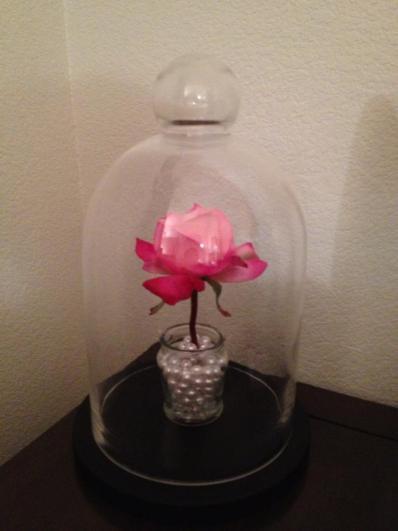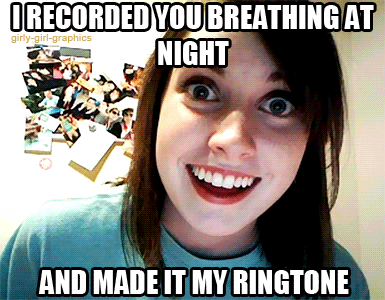Sarahbeth Caplin's Blog, page 50
March 20, 2015
Hell, Judaism, mission trips, identity crises, and why I still bother with this whole Jesus thing
I’ve written before about hell being my biggest stumbling block within Christianity, but the topic emerged again in my brain during a sermon about two weeks ago, where a guest speaker talked about his overseas mission trip. Something like eighteen families in a single Asian village came to know Christ as a result of his endeavor, and while hell was not explicitly mentioned during his talk, the idea was still embedded throughout: what need is there for evangelism if the goal is not to save people from something bad?
People around me clapped and cheered “Amen” at those numbers, and I realized for about the thousandth time in the six years I’ve been a Christian that I still have a stubborn inner Jew, and she comes out roaring in moments like this. As a whole, Judaism is pretty unconcerned about the notion of any afterlife, and is driven by an obligation for tikkun olam – social justice – than any desire to gain converts.
Now I’m sure that most missionaries travel abroad not only to spread the gospel message but to perform acts of service as well. I don’t want to generalize that all mission trips are agenda-driven, but growing up as a member of the religious minority has not shaped my view of missionaries in a very positive light. When I think of missionaries, I can’t help but think of trampling on someone else’s turf, invading someone else’s culture, and telling them their beliefs are wrong.
I realized I’d rather give my money to causes that directly affect people in this life – a very Jewish way of thinking. To the Christian, however, what we suffer on earth cannot compare to the suffering that awaits nonbelievers after death – an idea that always struck me as philosophical more than literal, because twenty years of Judaism trained me not to be concerned about such matters. Even today, it’s still extremely difficult to wrap my mind around.
So why do I still bother? Why do I continue going back to church week after week, where I’m bound to continue hearing these troubling messages?
I go because an incarnate God (a nonexistent concept in Judaism, if not a heretical one) appeals to me: a God who possessed a human body that felt love, depression, anger, and physical agony. Christianity gave me a tangible example of putting others before myself (in non-codependent ways). That is still meaningful to me, and where I am reminded of humanity’s intrinsic value – Imago Dei – on days when I just hate everybody. And the idea of redemption: God taking broken things and making them new; no negative experience ever having to be wasted. I just love that, and I’ve seen evidence of that in my life a few times.
But then there’s other parts attached, like hell and Satan and demonic influences, which never resonated with me, and still don’t. I never understood where hell even came from, if the Jews penned the Old Testament, which is largely silent about the topic. As previously mentioned, Judaism puts virtually no emphasis on it. If punishment for the wicked is mentioned in the OT at all, it is referred to as ultimate destruction, not eternal agony. And, if hell is eternal – that is, if I’m defining “eternal” right – that means it has no end OR beginning. So how could that be, if punishment and death did not exist before the Fall?
I have no answers to these, and I could very well be wrong in my theorizing. It just doesn’t make sense to me.
And then there are the times I look around the sanctuary at all the people with their eyes closed, swaying and raising their hands to music, which was never integral to the worship I grew up with, and I can’t help but think These are not my people.
And yet, if I profess to still believe in Jesus the incarnate son of God, they are by default my people. And it goes without saying that any systematic set of beliefs will come with its own unique culture and verbiage. The culture and “Christianese” lingo I can do without – that’s not what Christianity is based on. And I’m quite certain that the Jewish cultural norms I’m so comfortable in probably sound as downright strange to gentiles as “love on” and “washed by the blood” sound to me.
And I’m also certain that no matter which faith I choose, there will be unanswerable questions and habitual doubts. I have posited before among Christian groups that there could be a chance – maybe a 1% chance, but still a chance nonetheless – that we’re all wrong about what the Real Truth is. Maybe the “correct” religion died out with a remote Amazonian tribe centuries ago. To me, that seemed like a humble thing to consider, but that line of thinking is what drove me out of seminary – a place that did not feel safe because apparently, I asked too many questions.
As you can see, I am far from giving up on asking. And the questions only get more difficult as time goes on, but being as stubborn as I am makes me all the more determined to keep seeking and not give up.
Filed under: Religion Tagged: Christian culture, Christianity, evangelicals, hell, Judaism, social justice

Judging writers by their characters
With every new book I publish, sometimes I worry about alienating earlier readers who started following my writing after reading Confessions of a Prodigal Daughter. I worry about making the wrong impression in conservative places like church, as each novel gets progressively edgier. I’ve shifted from writing Young Adult novels to New Adult not just because my characters are older, but the themes are maturing as well.
I’ve found that there’s a certain freedom in creating characters who don’t necessarily share my values. That’s a common misconception people have: that the author always endorses the actions of their character(s). I can say with certainty that Adelaide in A Stunning Accusation has very different values than I do when it comes to relationships. She lives a lifestyle I never found appealing (though there’s a reason for it – but explaining it would be a major spoiler).
Since I’m writing for a specific audience, I wanted to write a story that appeals to their values. Young adults who are impacted by rape culture are not typically abstinent. They probably curse and drink. This demographic deserves to know that their previous sexual choices have no relevance to being sexually assaulted. This is a group of people who are commonly told that if they didn’t sleep around so much, if they didn’t get drunk so often, they wouldn’t have been raped. That is a lie, and this is a story I wanted to write for them.
But this book is not “Christian,” which puts me in an odd position as I meet new people at church who ask me what I do for a living, and where they can find my books. I have different objectives for each book I write, and I already made my Christian statement with Confessions. There’s a fine line between holding a core set of values that separate you from the rest, and following a prescribed set of rules because it’s expected of you. That’s a battle I struggle with when writing for specific audiences: but it’s a very good reason why I don’t write Christian fiction.
I’m hoping that people will be able to appreciate the overall message of my book without getting hung up on the choices my characters make. Believe it or not, they aren’t all autobiographical – and some of my favorite books are the ones where the characters make all kinds of messy choices, but become wiser and stronger as a result of them.
Anyone else worry about readers judging your character based on what you write about?
Filed under: Rape Culture, Religion, Writing & Publishing Tagged: Author Sarahbeth Caplin, censorship, Christian culture, Christianity, Confessions of a Prodigal Daughter, Controversy, rape culture, Writing

March 18, 2015
#BeWow: What gives me joy this week
 This is sort of an experimental post: a challenge issued to me by RonovanWrites, and this week I’m going to accept it. For those who have experienced depression, you know how difficult it can be sometimes to focus on things that are good when sadness feels bigger than you. When I seriously thought about what’s been good lately, I realized I didn’t have to think on too large of a scale. The things that lift my heart can be small, and they can add up.
This is sort of an experimental post: a challenge issued to me by RonovanWrites, and this week I’m going to accept it. For those who have experienced depression, you know how difficult it can be sometimes to focus on things that are good when sadness feels bigger than you. When I seriously thought about what’s been good lately, I realized I didn’t have to think on too large of a scale. The things that lift my heart can be small, and they can add up.
While I’ve felt triggered a few times in church lately, and even by some Facebook posts from well-intentioned Christian friends, I am grateful for my pastor’s words that wherever you happen to be in your spiritual journey is perfectly okay. In the midst of “salvation anxiety”– feeling like my entire faith is falling apart because I’m agnostic about the doctrine of hell and question God’s goodness – the reminder that faith is not a race is comforting. Doesn’t mean I won’t compare myself to other Christians who seem to have it all together, but chances are they might be putting on a brave front to cover their doubts as well.
In addition, I have finally accepted that everyone is a heretic to someone. There’s just no way around that. No one has a perfect grip on theology, God’s motives, or crystal-clear biblical interpretation. They just don’t.
I’m grateful that even though my dream job pays practically nothing (for now), my husband appreciates the things I bring to our marriage: laundry, meals, a cleaned apartment. I’m grateful that I’ve gotten over my fear of being a somewhat traditional housewife, as if I can’t be that and a feminist simultaneously. Honestly, I like this life. I’m grateful I can afford to pursue a career in writing because Joshua’s job has benefits. I’m grateful I have the luxury of staying home with my furbabies.
I’m also grateful for Kelly Clarkson’s new song, “Invincible.” It’s an empowering message I really can’t hear too many times. No other song will possess the same healing powers of everything ever produced by Anna Nalick, but this song is pretty good.
What are you ‘Wowed’ by this week?
Filed under: Feminism, Other stuff, Religion, Writing & Publishing Tagged: cats, Christian culture, Christianity, depression, Facebook, Feminism, hell

March 13, 2015
Good books in sacred spaces
I don’t understand people who can read any old book in any place. I’ve seen people reading Gone Girl and The Fault in Our Stars on the treadmill at the gym, and thought You must have feels of steel to be reading that in public.
I stick to non-fiction when I read in public places. I’m less likely to become emotionally invested in a biography as I am with fiction, which I only read in a sacred space: my library.
In lieu of a guest bedroom, I turned the second room of my apartment into a library, because I am a firm believer in sacred spaces for reading. While Pinterest has some really interesting ideas, my inspiration came solely from Beauty and the Beast (minus the awesome ladders).
These were the tallest shelves I could find. One day, I’ll have enough books to line the entire wall.
And what’s a Beauty and the Beast-themed library without the rose?! (Yes, I know it was in the West Wing of the castle, but you have to admit it still looks cool)
It is in this space I feel free to weep openly when my favorite stories traumatize me (in the best way possible, of course). If you’ve ever had strangers staring at you when tearing up at the end of a book, you understand why this space is necessary.
And what’s a library without a comfortable reading chair (or a library cat?). And yes, that is a Scrabble blanket.
As a compromise, I let my husband have the living room as the Man Cave.
Filed under: Other stuff

March 6, 2015
Same book, new title: A STUNNING ACCUSATION
I’ve had beta readers in the past tell me whether they liked my chosen titles, and sometimes they’ve helped me come up with better ones. This time around, no one could come up with anything more compelling than my creation, Shades of Doubt, which my Booktrope editor rightly pointed out was too similar to Fifty Shades of Grey (guess that word “shades” will no longer be the same!). It was he who came up with A STUNNING ACCUSATION, which is sort of a play on the magazine my main character works for.
So, let’s try this again: introducing A STUNNING ACCUSATION, the story of a woman on a quest to prove her boyfriend’s innocence when he is accused of assault. That is, if he’s truly innocent…
***
Love, in my experience, was about seeing a vision of a person: imagining the fullness of what they could be, and only together could the fullness of that vision be achieved.
At the same time, a big part of attraction had to do with mystery. No one could be known completely, and what made love such a thrilling adventure was the quest of getting to the bottom of a person, knowing the more you uncovered, the more you still had yet to find. And Jordan was an expert at being unknowable. Everything he did – every joke he told, every expression he made, even every move during sex – was calculated. He was a man who knew he had a certain image in public, so parts of him must remain untouchable to maintain it – even with me (or, you could argue, since my columns were such a hit, especially with me).
A huge part of being in love was respecting that mystery – resisting the temptation to reinvent a person as you saw fit.
Release date (and a cover!) will be known soon! Meanwhile, add to Goodreads.
Filed under: Rape Culture, Writing & Publishing Tagged: Author Sarahbeth Caplin, Indie Author Life, rape culture, Writing

March 4, 2015
When one person’s miracle is another person’s trigger
Dear Facebook friends,
I want to draw your attention to something that’s been bothering me lately. As with many of my opinions, this one is guaranteed to irk some people, so I’m going to do my best to explain it in a way that is non-judgmental and non-condemning.
I read many of the prayer requests you post. While I don’t always remember to pray, I appreciate the realness and compassion behind your words. The reminder that life is both unpredictable and messy is sometimes a welcome change in a sea of posts that tempt me to compare my life to others.
When I read your requests for healing prayers, I am especially sympathetic, because most of you know I’ve been in that desperate place with my own family. I understand more than I wish I did the helplessness you might feel when prayer is the only thing left to do for someone.
It’s just the follow-up posts I sometimes have trouble with, which occasionally crop up: “[Insert loved one’s name here] is healed! Praise God!!” The comments tend to be echoes of the same, with additional commentary that the prayers of the faithful are always answered, that God always hears, and God always cares.
It’s not that I disagree with all that. I’m a Christian too, and I believe in the power of prayer (though lately I’m shifting toward the belief that prayer is more for changing ourselves than our circumstances, but that’s another post). It was so touching to hear from friends near and far that they added my father’s name to their prayer lists; that they didn’t forget and they weren’t giving up. I so appreciated that because in the final weeks of his life, praying was exhausting and I just couldn’t do it.
So it’s with complete sincerity and a heartbroken spirit that I ask you to please consider how it makes people who just lost someone they love feel when you make posts like that. Believe me, I know it is not your intent to be hurtful. And I am glad that the situation turned out well for you. I really am. But the implication I read is that my father must have died because not enough people prayed, they prayed wrong, or they prayed to the wrong god. However encouraging you intended to be, those posts hurt. They poke a wound in me that hasn’t healed, and may always feel a little sore.
In the same way that “Nice haircut!” can be a genuine compliment or a snappy insult, it’s not necessarily the words you say, but how you say them. I don’t believe that God turned his back on my family. It’s obvious my father died because he pulled the genetic short stick, and that end was inevitable regardless of the number of prayers we received. That’s how nature works. I don’t disbelieve in miracles, but if they still happen, they are rare. If prayer worked as many Christians seem to think it does, there would be sporadic, unexplainable healings happening all over the place. Fewer, if any people at all, would be dying in tragic circumstances.
You may think that my grief is clouding my ability to keep things in perspective, and maybe you’re right. But I see these posts so often, and am so frequently triggered by them, I just couldn’t stay silent about this any longer.
Please don’t think that I am anti-gratitude or against praising God for good things. I don’t ever want you to stop doing this! All I ask is that you be mindful of how people not as fortunate might interpret what you’re saying. If God chooses to heal one person, that means there’s scores of others he did not heal. The last thing that the bereaved should be contemplating is why someone else’s loved one was divinely selected for healing, but theirs was not.
This is not an issue of being politically correct and tiptoeing around people’s feelings; this runs a bit deeper than that, because grief is serious. Grief forever changes things. I was a Christian before and I’m a Christian still, yet there was no way I could emerge from this loss unchanged. My conceptions of healing prayers were one thing that got tweaked from all this. God does provide healing: that’s why he gave us doctors. Given the way that nature was designed to work (and, I suppose, as a result of the Fall), not every condition can be healed. Life just sucks like that sometimes.
Feel free to disagree with me – I know many of you will. I just needed to get this off my chest, and now that I have, it’s time to make more coffee and get back to working on my new book.
Filed under: Religion Tagged: cancer, Christian culture, Christianity, Controversy, depression, evangelicals, Facebook, grief

March 2, 2015
From one anxiety-ridden soul to another: what helps, what doesn’t
I don’t want this post to sound like it was ripped from the pages of a Chicken Soup book by telling people who suffer from anxiety and panic disorders that the best cure (besides counseling and medication) is simply appreciating what you’ve got rather than worry so much about losing it.
That advice means nothing to people whose anxiety is triggered by circumstances; people who suffer as they do in part because they already have lost something or someone valuable to them.
In the weeks after my father died, my home was flooded with widows, and many stories I heard came from people whose spouses seemed healthy and normal, only to literally drop dead in a grocery store from an undiagnosed heart condition (or something of the sort).
I worry enough about losing people I love (and with good reason), so needless to say, when you already struggle with anxiety, these kinds of stories don’t help. People like me – the planning type – like to know what’s ahead, which is why anxiety is often coupled with Obsessive Compulsive Disorder. I would so rather know that something terrible is coming than have it strike my otherwise happy, quiet life without so much as a warning.
Marrying a physician assistant meant adjusting to a life of unpredictable scheduling: a patient could develop complications and need surgery at any hour of the day or night, meaning sometimes date nights get cancelled. That much I can handle, but what’s more difficult are the nights when my husband comes home hours later than usual – sometimes close to midnight – because there were complications in surgery, or an emergency came up, and it happens so quickly he doesn’t have time to text me “Hey hon, gonna be late tonight.”
What’s really frustrating is that I know, deep down, this is usually the case. It’s natural to worry from time to time, but for the person with an anxiety disorder, every hour that passes without hearing from your loved one is confirmation that they must have been killed by a drunk driver, and you may even start to develop heart palpitations strong enough to make you want to pop a Xanax.
You don’t need to tell me that’s abnormal: believe me, I know it is. That’s why it’s called a disorder. It’s with great horror I realize I’ve become That Wife, the constant worrier, not unlike the Mom with similar fears about her children when they are five minutes past curfew: it’s never “Oh, well, her phone must have lost battery, or it’s in the bottom of her purse and she didn’t hear it ring,” but rather Someone kidnapped her and she is trapped in someone’s trunk.
I’ve seen plenty of those mothers on sitcoms before. We laugh and make fun of such people, but consider for a moment that such fears go beyond a personality quirk, and are indicative of something more serious.
What I’d give to be more concerned that my husband is late because he’s out with his mistress, not dead or unconscious (okay, not really).
So what is the best cure for this? However well-intentioned this advice may be, “Just appreciate what you have while you still have it” is futile (can you tell I’ve heard it before?). Sometimes, when the beginnings of panic start digging their claws in, it helps to sit down and focus on breathing. Make a cup of tea. Sit with a pet, if you have one (my kittens have been extremely therapeutic). Pray, if you’re the praying type. You can’t change the circumstances around you, but you can pray for peace in the midst of them.
Honestly, last time this happened to me, I made a cup of chamomile and watched Frozen. Need I explain how empowering “Let it Go” is for the anxiety-ridden soul? :)
Filed under: Other stuff Tagged: cats, depression, grief

February 24, 2015
“A priest, nun, and rabbi walk into a bar…” (A true story)
I’m learning how to speak in front of crowds again. This reading from Confessions of a Prodigal Daughter is through Northern Colorado Writers. I always read live from Confessions because I figure the audience will respond better to stories about my family’s quirks and that time my friends and I – a priest, a nun, and a wannabe rabbi – all went into a bar this one time just so we could say we did, as opposed to my darker stories about rape and spiritual abuse.
Anyway, enjoy!
Filed under: Religion, Writing & Publishing Tagged: Author Sarahbeth Caplin, Christian culture, Christianity, Confessions of a Prodigal Daughter, evangelicals, grief, hell, Indie Author Life, Judaism, Writing

If predatory lyrics weren’t so catchy, would we still listen?
Ever have an event happen in your life that caused you to view the world differently?
I have. And it’s forever changed the way I view pop culture.
Turn on the radio for half an hour and pay attention, if you can, to the lyrics (sometimes it’s hard: “Starbucks lovers” vs “Long list of ex lovers,” anyone?). Really listen to what they say.
I never realized just how much acceptance of harassment, stalking, and predatory behavior is laced throughout these songs, though it’s easy to miss if you’re paying more attention to the catchiness. I know I do, but separating the ear-worming tune from the words themselves is something I’ve been more deliberate about lately. The result is kind of terrifying.
Read these lyrics and tell me if you think I’m crazy:
Baby, I’m preying on you tonight
Hunt you down eat you alive
Just like animals, animals, like animals
Maybe you think that you can hide
I can smell your scent from miles
Just like animals, animals
(Maroon 5, ‘Animals’)
Everybody wanna steal my girl
Everybody wanna take my heart away
Couple billion in the whole wide world
Find another one cause she belongs to me
(One Direction, ‘Steal My Girl’)
Every breath you take
Every move you make
Every bond you break
Every step you take
I’ll be watching you
(Sting, ‘Every Breath You Take’)
Hike up your skirt a little more
and show your world to me
In a boys dream, in a boys dream
Oh I watch you there
through the window
And I stare at you
You wear nothing but you
wear it so well
(Dave Matthews Band, ‘Crash Into Me’)
These songs are treated as romance songs: swoon-worthy and awe-inducing. Robin Thicke’s rape anthem ‘Blurred Lines’ was even played at my wedding. These themes are nothing new, obviously, though it is tempting to blame the likes of Twilight and a certain BDSM novel that must not be named for making these themes ‘in’ again. The above song lyrics make for a very applicable soundtrack.
It’s a frightening thing to realize how much of my iPod contains songs like these, and how I internalized these messages as a rape survivor. While I’m not one to blame pop culture for others’ bad choices, it does make sense as to why it’s easy to justify the actions in the lyrics and consider that maybe you’re the one with the problem. Maybe you’re the one who’s too sensitive, who takes things a little too personally.
Even after I ended my abusive relationship and thought I “knew better,” I still directed blame toward myself when a popular, charismatic man cornered me at a picnic during my year at seminary, demanding to know why I wouldn’t go out with him. The fact that I had a boyfriend made no difference. For weeks after, I told no one except my roommate. When I grew increasingly uncomfortable seeing this person at campus parties, I started speaking up more. The response? “He probably didn’t mean it like that.”
So then how did he mean it? How does Maroon 5 mean it? And Dave Matthews, Sting, and how many others?
If the songs that romanticize these actions weren’t so catchy, would we still defend them so ardently?
Filed under: Rape Culture Tagged: Controversy, Fifty Shades of Grey, rape culture

February 18, 2015
Dear Church, here is where you lose me
Dear Church,
We used to have such a great relationship. I’d like to think we still do, it’s just strained a little bit – like all relationships at some point or another. The truth is, I’d really like to continue making this work. It’s through you I’ve found security, encouragement, and hope: important ingredients for a healthy, purposeful life. So I hope you listen to what I’m about to say here.
At first, I was taught that a relationship with God – and by extension, with you, Church – started with Jesus Christ: believing the Gospel message that he came and died to redeem the world of its sins through death on the cross. Believing this wasn’t the hard part, but rather what happened after that.
I became active in small groups that ended up debating issues such as evolution and its conflict with the creation narrative in Genesis. Considering that I was not raised in church and became a Christian in college, evolution was no conflict for me. But according to this small group, it “wasn’t Christian” to believe the world was not created in six literal days. Apparently, if the Genesis story fails, it undoes the entire arc of the Christian story.
Church, this was not part of the agreement plan I was originally told. I was taught Jesus – that’s it.
And then there’s the issue of homosexuality. I’m sorry, Church, but I just don’t understand what’s wrong with two consenting adults being in a loving, committed relationship who also happen to be of the same sex. I don’t understand how that hurts anyone. Sometimes you threw a bunch of Bible verses at me and said, “There, that’s why.” But I still had more questions, Church, and you started to doubt the sincerity of my faith because “The Bible said so” wasn’t clicking like you thought it should.
I also struggle with the doctrine of hell, Church. Oh, do I struggle – this, more than anything else, has the power to make or break my membership. I have so many more questions about this that, again, have been continually answered with clobber verse after clobber verse that still don’t get to the heart of my doubts. “People go to hell because they have unrepentant sins.” Okay, but if it pains God so much that his children go there, why not find another way? Why not find another system of justice? I’ve tried to ask these questions, Church, and got told to keep praying about it, because God is God and I’m not to question him. Except, you also told me that God wants to be known by his creation. If that’s true, why are my questions unacceptable?
It’s other things, too, Church. Just when I think I figured out how to live this Christian life correctly, I find there’s something else I’m doing wrong. I’m not evangelizing enough. I take birth control; I don’t even want kids. I don’t read the Bible as often as I should and I still don’t quite understand tithing, so when the plate comes around I let it pass. I take medication for my depression instead of simply praying it away. I have tattoos, I curse sometimes, I’m a frequent social drinker. I didn’t ‘save myself’ until marriage. I’m a feminist, can’t be paid enough to ever vote Republican (except that one time, but never again – don’t tell my father), I have no desire to make America a theocracy. I’m a perpetual heretic by someone’s definition, somewhere: my question is, whose interpretation is the ‘correct’ one? They all come from the same book.
It just seems like there’s always something I’m missing or doing wrong; always someone in the crowd waiting to call me out on it. Whether they mean to make me feel guilty or not, that’s what I feel. And it’s crippling my faith.
Church, this is where you’re starting to lose me. You say it’s about Jesus, but that’s not quite the truth, is it? If it is, why are so many people leaving you when a pastor says he’s voting in favor of gay marriage? Why do so many people leave you if they discover you’re lead by a woman? There are so many stipulations involved, and I’m losing count. I just don’t know how I can continue to keep up with your demands anymore.
In Judaism, you’re Jewish if you’re born to Jewish parents. That’s it. I so miss that simplicity, the utter lack of pressure to believe things a certain way.
I’m not going to quit yet, Church. I don’t want to quit – I want to rediscover the same passion and fervor I had when I first discovered you. I used to feel secure. I used to feel confident. I used to feel enough.
Here’s my fear, Church: If I don’t make the right choices based on information that is maddeningly difficult to discern, my eternal soul could suffer. How is that fair or loving?
I don’t know what’s happening, Church. All I ask from you is that you show me compassion as I continue to grapple and seek answers. Please don’t condemn me, or rest assured, you will lose me.
Still hanging,
SB
Filed under: Religion Tagged: Christian culture, Christianity, depression, evangelicals, grief, hell, Homosexuality, Judaism














